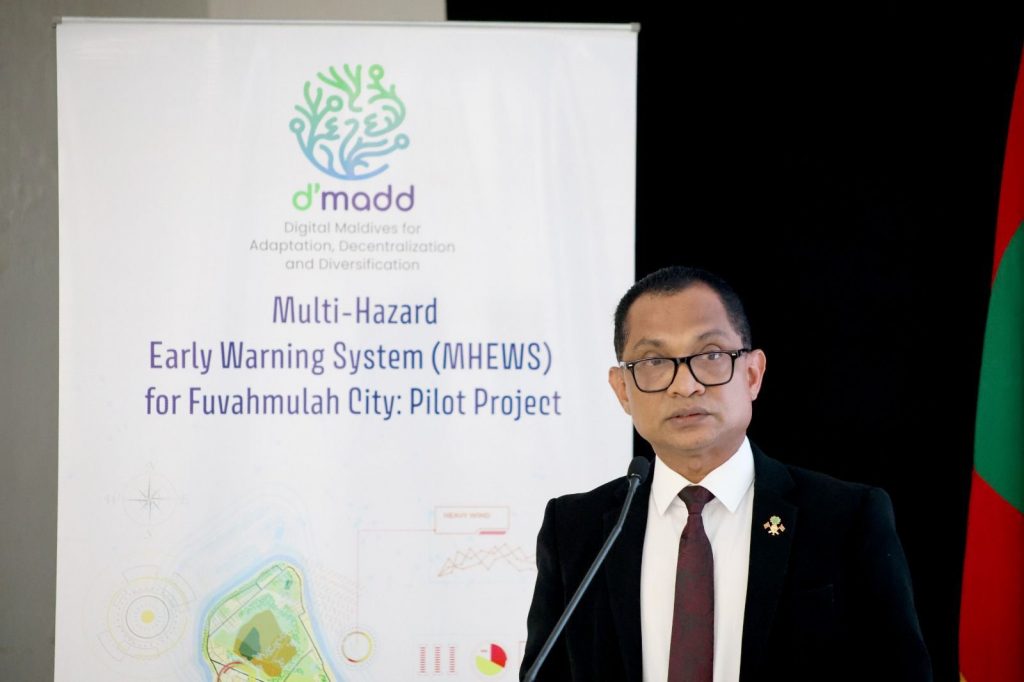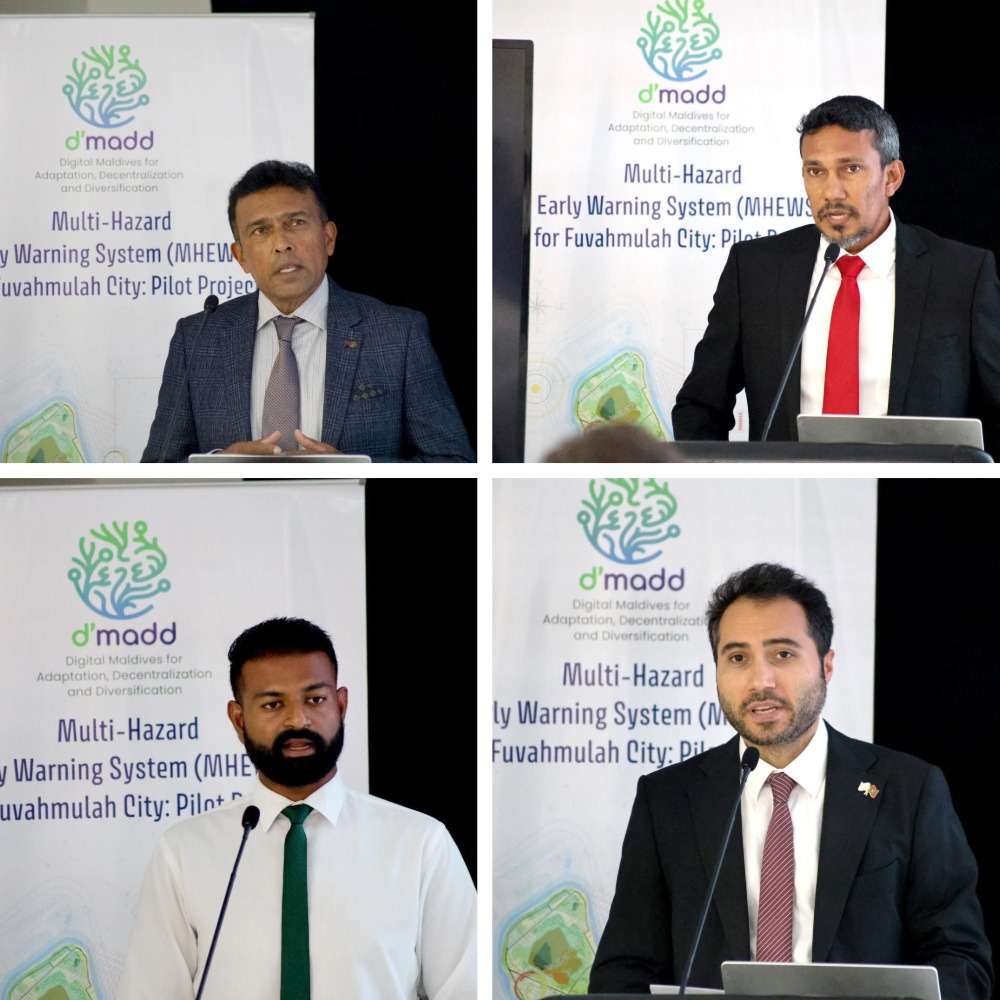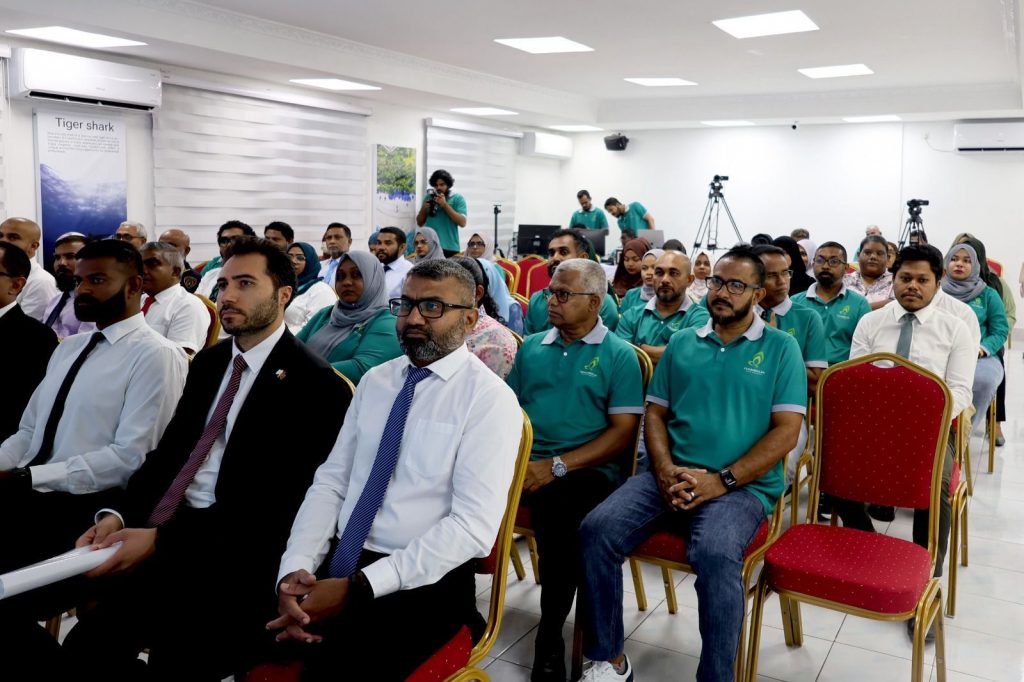We are pleased to announce the launch of an Impact-based Multi-Hazard Early Warning System (MHEWS) in Fuvahmulah City, Maldives, which represents a significant step in protecting communities from extreme weather and climate-related hazards. Developed by the University of Salford’s THINKlab using its MOBILISE solutions, the system enables authorities to anticipate impacts and issue timely, actionable warnings to reduce risks to lives, infrastructure and livelihoods.
The system was officially inaugurated by Dr Mohamed Kinaanath, Minister of State for Homeland Security and Technology, at a ceremony attended by more than 70 senior officials representing national and local agencies.


Keynote speakers included Mr Ismail Rafeeq, Mayor of Fuvahmulah City, Mr Mohamed Hassaan, Chief Executive of the Environmental Regulatory Authority, Mr Erdem Atas, Country Economist and Resident Coordinator for the Maldives, World Bank and Prof. Terrence Fernando, Director of THINKlab and Project Consultant.

Speakers praised the initiative as a transformative step for climate adaptation in the Maldives, stressing the need to expand the platform nationwide to better protect vulnerable communities.
Prof. Terrence Fernando, Director of the THINKlab, said “THINKlab is delighted to see our research and development on climate resilience making a real impact. Through MOBILISE, we are enabling national and local agencies to collaborate effectively in monitoring and forecasting extreme weather, and issuing timely early warnings that save lives.”
The MHEWS project is led by the Ministry of Homeland Security and Technology, with the Ministry of Tourism and Environment as a primary beneficiary. Funding is provided by the World Bank’s Digital Maldives for Adaptation, Decentralisation and Diversification (DMADD) Project, with close involvement from the Maldives Meteorology Services, National Disaster Management Agency, and relevant departments of the Ministry of Tourism and Environment. The launch in Fuvahmulah City is seen as a landmark achievement for climate resilience in the Maldives and further demonstrates the global impact of THINKlab’s research at the University of Salford.
We invite government organisations, NGOs, and climate resilience technology providers to connect with us. We are keen to explore potential collaborations on implementing similar systems in different regions worldwide and look forward to discussing opportunities for partnership.